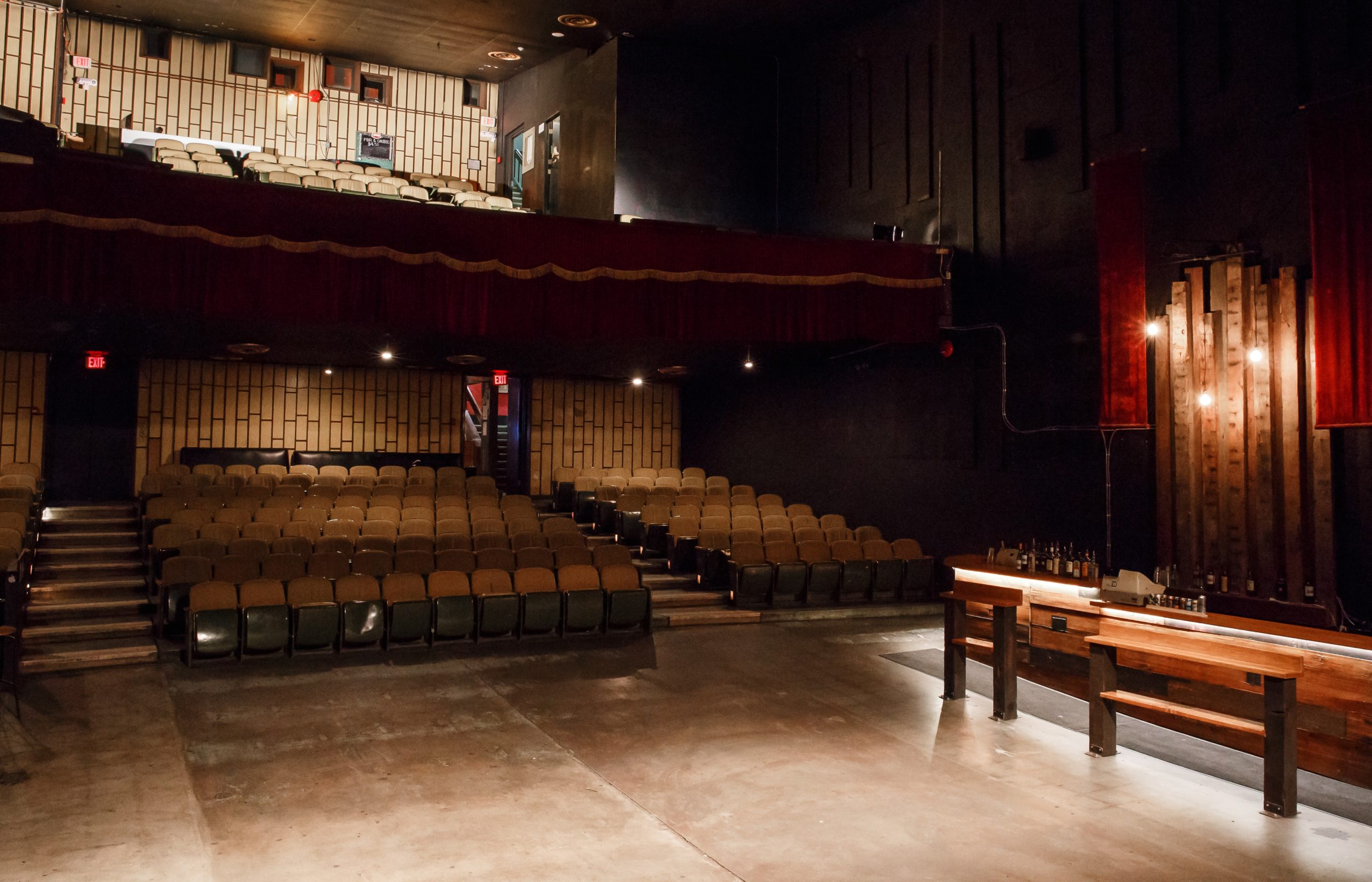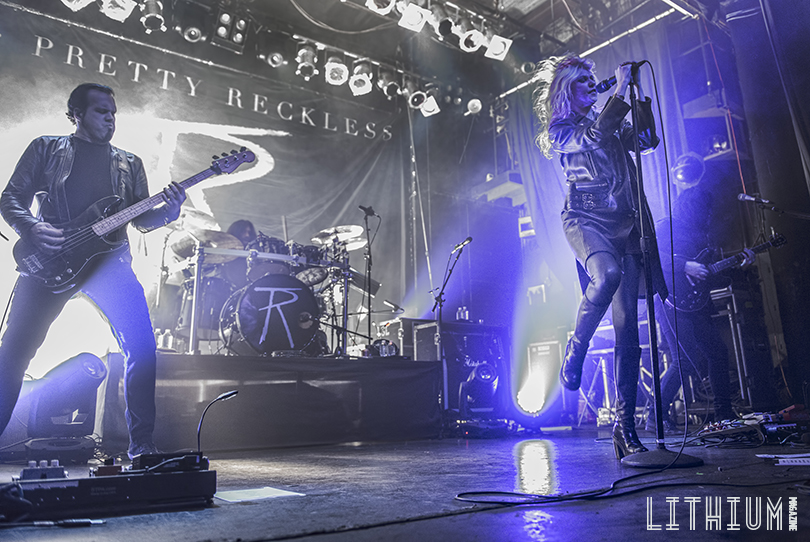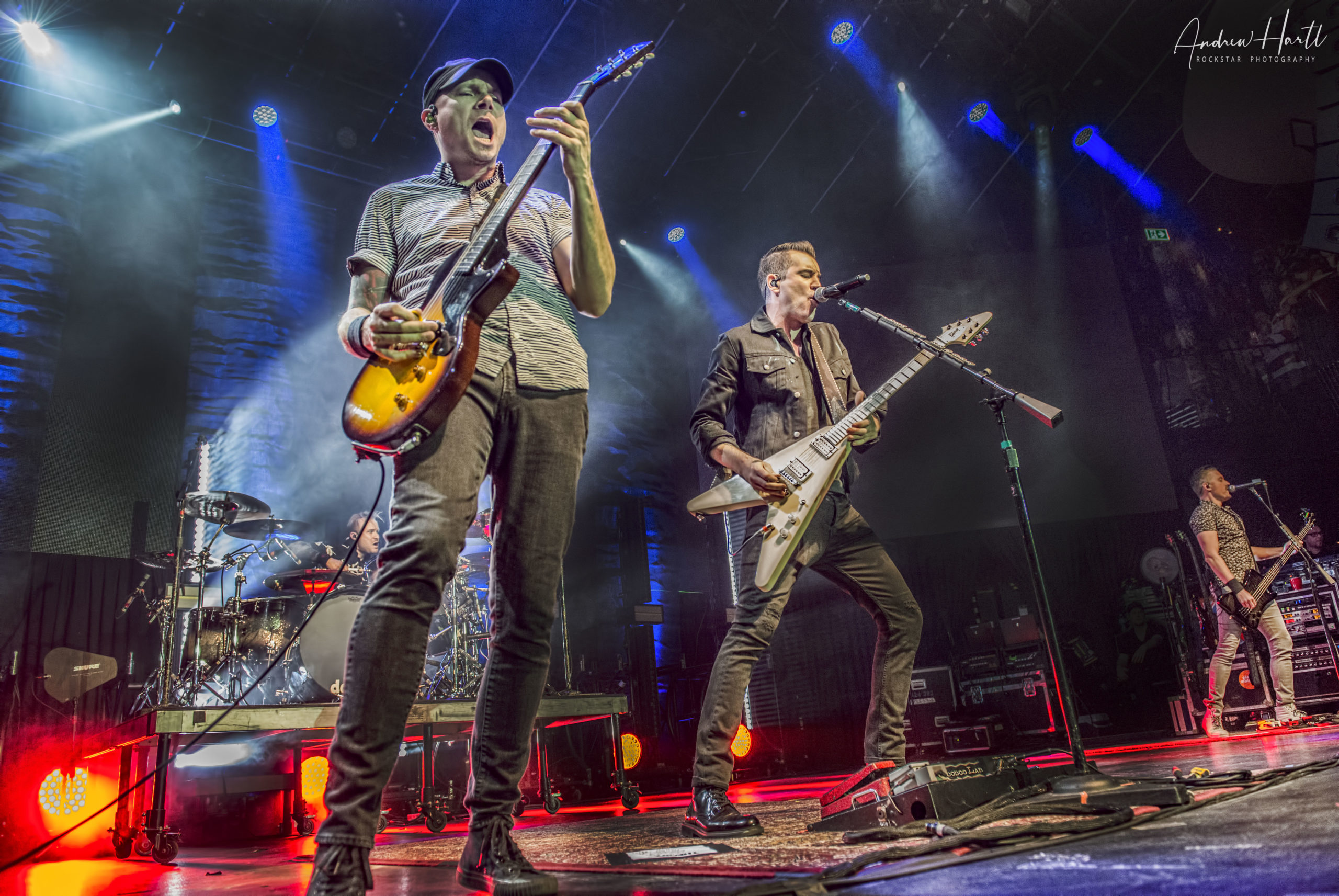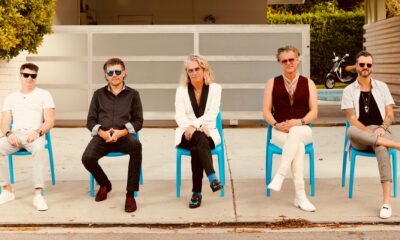Culture
Shaun Bowring on the Canadian Independent Venue Coalition and Supporting Live Music During Covid-19
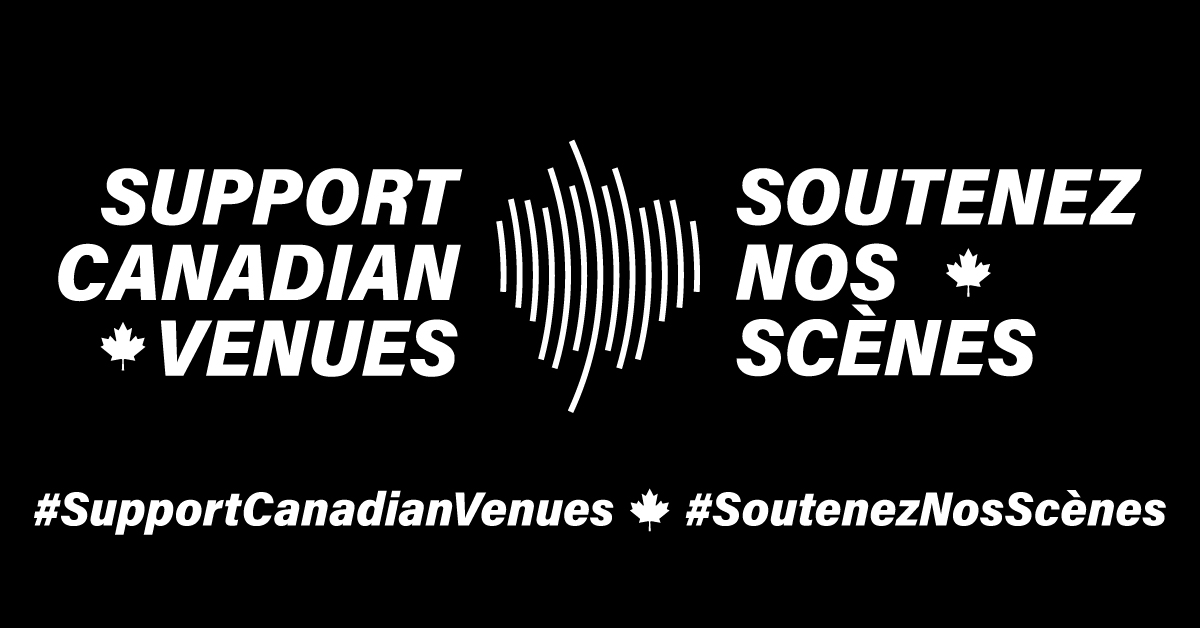
With all of the industries hit hard by the ongoing COVID-19 pandemic, perhaps none has been hit as hard as the live music and performing arts industries. Anything that involves sitting in an audience has been ravaged by this current pandemic and those who get the brunt of it, unfortunately, are independent musicians and all of the associated groups of people that help support live music.
Never ones to just throw in the towel, these groups are banding together to fight back and do what they can to help and support each other. Hundreds of concert venues, booking agencies, independent promoters, production companies, independent music festivals and more have joined forces to start the #SupportCanadianVenues movement under the Canadian Independent Venue Coalition. The Coalition is pursuing government support for independent venues across Canada which are currently in a fragile state that has been amplified by the pandemic.
Recent research suggests that there is the potential for over 90 percent of independent venues to shut down for good in a mere matter of months if they do not get the much needed financial support they deserve. It’s the Coalition’s position that without this assistance, there will be no live music industry to return to once this pandemic is eventually under control. If you’d like to get involved, you can share the website www.supportcanadianvenues.ca and write to your local political representatives in order to make them aware of the importance of this cause.
To learn more about the Coalition and how we can support our venues in a time of great need, we spoke with Shaun Bowring, the owner and founder of Transmit Presents Promotion Company, which operates both The Garrison and The Baby G, both very important independent live music venues in Toronto. Shaun has a history with the music industry as a musician, promoter, and entrepreneur that extends back now 30 years and has been instrumental in the success of the local music scene.
Give us a little more detail on the Canadian Independent Venue Coalition. Who was the driving force behind its creation?
Shaun Bowring: “CIVC is a newly formed coalition of individuals from venues, promotion companies, regional music industry organizations, etc. It is a spin-off of a weekly Zoom meeting organized and hosted by CLMA (Canadian Live Music Association) that has anywhere from 75 to 150 attendees weekly. The driving force was to assure bricks and mortar music venues organized quickly to have a common voice and that common voice was represented at the government table.”
The Coalition is now composed of hundreds of venues, booking agencies, promoters, independent festivals, etc, from across Canada. Have you been surprised at how widespread this movement has become in such a short period of time?
“I am pleasantly surprised by the engagement with the understanding that it is actually long overdue. CLMA was established just over five years ago and is doing great work… CIVC was started to support CLMA initiatives and add a hyper-focused voice for independent venues as an industry.
Conversely, the record company side of the music industry organized over 30 years ago and has many associations and data that represent that portion of the music business in Canada, thus having an ongoing dialogue with the federal government and established programs that support that side of the music industry.
The live music industry annually contributes just under four billion dollars to the GDP and is approaching 100,000 jobs when including gig economy and contractors. Time to be recognized as a contributing industry and not something that happens late at night in a dark bar.”
Those that have contributed to starting this initiative have generously given a lot of their time and resources to jump-start the movement. How does one get involved in supporting the movement and what can they do to make a difference?
“CIVC was organized under the COVID-19 state of emergency and is completely volunteer-driven. Many individuals that are experts in their field including venue owners, promoters, publicists, industry advocates, social media etc… contributing their time has made for a robust plan of action and execution of ideas in a very short amount of time.
Moving forward we look to organizations like Music Venue Trust in the U.K. for inspiration. They have built out a team of experts and consultants that include music and entertainment law, municipal planning and noise, acoustics, architecture, corporate law, tax law, real estate law, branding/sponsorship, data analyst, fundraising, etc.
Having a directory of experts join our team for ongoing consultation and advice is key to growing CIVC to realize its full potential, represent stakeholders, help shape legislation and not only saving but strengthening the live music industry into the future.”
How did you personally come to be involved in the Coalition? What is your role within it?
“I own two music venues and a promotion company in Toronto. I got involved in advocacy work in general when the music office opened in Toronto over five years ago. Worked on a few initiatives with Mike Tanner as well as consulted on projects with Toronto city planning, noise bylaws etc. I am a current member of TMAC, the Toronto Music Advisory Committee and have worked with CLMA on initiatives over the last few years.
When COVID-19 hit and our venues were shuttered the CLMA played a fantastic role with outreach bringing together the live music sector with several weekly Zoom meetings. From those meetings and conversations with other venue owners, operators grew the consensus that we needed to represent our businesses’ specific requirements to the government.
We are all wearing multiple hats within the coalition. We collectively identify tasks and divide up the tasks and work based on our strengths… I have personally been working on artist outreach, creating video content for socials, strategizing with multiple stakeholders across the country, writing short and long term economic recovery outline alongside a consultant with a history of government portfolios, part of a working group identifying, compiling reopening safety measure recommendations for live music venues and next week will be more of the same as well as starting some new initiatives.”
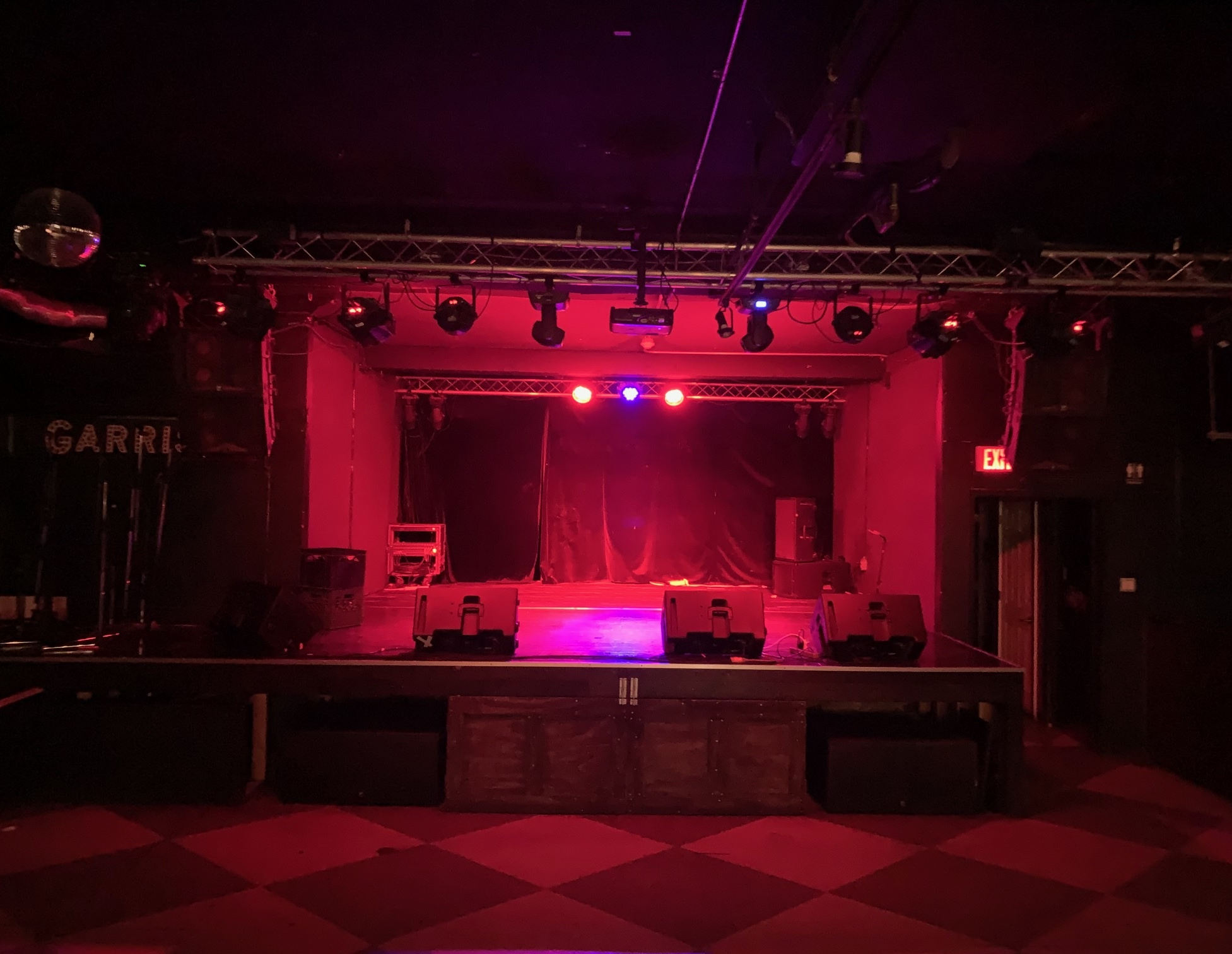
A photo of an empty Garrison in Downtown Toronto
The primary goal of the Coalition is to acquire government support for independent concert venues which the COVID-19 pandemic has obviously wreaked financial havoc on. What (if any) has been the response thus far from the various levels of government?
“On May 28th, Toronto City Council approved legislation that re-classed live music venues to a different property tax bracket that reduced annual property tax by 50 percent. This legislation was slowly making its way through city hall for a few years… Mike Tanner at the music office along with councillors, Cressy, Bailao, Thompson and mayor John Tory saw the importance of rushing it through as soon as possible. Myself and several TMAC members worked as a support group helping outline eligibility criteria and language of the legislation and compressed the timeline to three to four weeks to completion as opposed to what would normally have taken another six to twelve months.
Erin Benjamin of the CLMA with the support of CIVC lobbied hard to make sure that live music venues, promoters, etc. were included in the Phase 2 of the Heritage 500 million dollar arts and culture emergency support fund. Where the live music sector was not included in Phase One announcement, our combined efforts to educate Heritage Canada on the importance of the live music sector ultimately led to an established 20 million dollar allocation of emergency funding for the live music sector. A truly historic accomplishment and a good first step of what will be an ongoing process of planning long term post-COVID-19 recovery.
So two good ‘wins’ in a fairly short amount of time!”
The arts, in general, are usually neglected to a great extent when it comes to government budgeting and funding. What is your level of optimism that this movement is actually going to make a difference for those in need?
“I’m optimistic but believe the onus is us an industry to educate the government on how important music venues are to the entire live music sector. Without the network of venues across the country, artists have nowhere to perform or tour, promoters have nowhere to put shows on, sound techs don’t have bands to mix, staging companies aren’t installing/maintaining sound systems, ticketing companies aren’t selling tickets, venue staff like box office, security, bar servers, cleaners etc… are not generating income… The list goes on and on and the economic impact is massive across the country.
The other side of the coin is that the government needs to give us a seat at the table, understand the importance and infrastructure, take us seriously as an industry and react swiftly and appropriately. We have had some small wins but it is an ongoing process.”
Who are some of the more influential members of the music scene that have become involved in the Coalition? Who has really been supportive thus far?
“We have had a great response from our artist friends in the Canadian music scene. From newer up and coming touring acts like Kaleidoscope Horse, Pony to established acts like Broken Social Scene, METZ, Dilly Dally, Shad, Japandroids, Delhi 2 Dublin, Mouraine, Peach Pit to Canadian icons The Tragically Hip and Blue Rodeo. The last 20 years has seen the ‘music business’ turned on its head, where bands used to make a few dollars per record or CD sale, are now make a fraction of a penny per digitized song stream. All of these artists understand that small venues play an important role for them making their first connection and establishing an audience as they hone their craft. They know that one of their main sources of income comes from performing live and touring.
All of these artists and many more have played an important role with public outreach to explain the importance of live music and the massive strain the whole music scene is currently under.”
Each part of the country is reopening, or at least trying to, at different phases. For instance, some of the less populated provinces are further along right now than Ontario and Quebec. Are there any parts or segments of Canada where some venues are again starting to reopen?
“Poorly planned or miscalculated re-opening of venues would be more devastating than COVID!
Music fans not being confident returning to shows or worse yet having a bad experience or contracting COVID-19 at a show would have devastating long term effects. Government Public Health have deemed singing, dancing, shouting, being close to other people in enclosed quarter’s as high risk… all part of the experience to going to a live music event. We’ve seen what has happened in many parts of the U.S.A., some parts of Canada and many other parts of the world when entertainment businesses open prematurely… COVID-19 infections start to rise and those businesses go back into lockdown. A devastating process that will ultimately bankrupt many businesses. We are trying to avoid that at all costs!
The government-mandated the closure of our businesses. Music venues have complied, been good citizens and played our part in flattening the curve, not overwhelming health care or putting the public at risk. The government needs to take responsibility and negotiate an acceptable plan to support the live music industry and its recovery post-COVID-19. Then we can return to business, artists can generate income, our employees can return to work and we can all contribute to the economy and pay our taxes!”
What is your own prediction for the live music scene in Canada in the near future? Do you think it’s going to be very difficult for bands and artists to play live?
“Once it’s safe to reopen venues most of the activity will be local, regional plays for bands. Keeping in mind that venues, agents, promoters, artists, etc. all have a lead time of three to 24 months to set up tours. Again once it is safe audiences I think live music will flourish. People will really want to get away from their screens, interact with others and enjoy live music. We were already seeing numbers going up throughout 2019 and we were set for a strong 2020, 2021 before COVID hit.”
What do you think venues, promoters, agencies, etc can learn from this experience for the future? Is there a way that people can help prepare themselves should there be another pandemic?
“Clearly nobody was prepared for a pandemic of this proportion… not governments, healthcare, businesses, individuals etc. and yes the music industry as well.
Everyone is reacting and adapting, some with more success than others, as we all learn on the fly what a modern pandemic looks like. If it happens again in the near future I think there will be an established protocol for a wide mandatory lockdown as quickly as possible for as long as it takes. There has been too much mixed messaging about restarting the economy but continuing social distancing. It clearly is not working.
I have read several economists’ recommendations that suggest a total economic pause, no rents, no mortgage payment, close the stock markets, close all retail, only truly essential services be offered, maintained and that would be the fastest way to the other side of any future pandemic. Based on what we have seen with COVID-19, that seems to make sense from a public health as well a business perspective. So I don’t see a clear individual approach as just the live music industry but supporting any strong wide initiative for all industry to just turn off until it’s safe.
I think Canada has done well so far, but we are still in the middle of a global pandemic. Time will tell.
As a parting note, I’ll just say ultimately I’m a lifelong music fan and personally can’t wait to go to a live music show, socialize with some friends and have a beer. Nothing better!”
-

 Alternative/Rock1 day ago
Alternative/Rock1 day agoThe V13 Fix #010 w/ High on Fire, NOFX, My Dying Bride and more
-

 Hardcore/Punk1 week ago
Hardcore/Punk1 week agoHastings Beat Punks Kid Kapichi Vent Their Frustrations at Leeds Beckett University [Photos]
-

 Culture1 week ago
Culture1 week agoCirque Du Soleil OVO Takes Leeds Fans on a Unique, Unforgettable Journey [Photos]
-

 Alternative/Rock7 days ago
Alternative/Rock7 days agoA Rejuvenated Dream State are ‘Still Dreaming’ as They Bounce Into Manchester YES [Photos]
-

 Music2 days ago
Music2 days agoReclusive Producer Stumbleine Premieres Beat-Driven New Single “Cinderhaze”
-

 Culture3 days ago
Culture3 days agoDan Carter & George Miller Chat Foodinati Live, Heavy Metal Charities and Pre-Gig Meals
-

 Indie1 week ago
Indie1 week agoMichele Ducci Premieres Bouncy New Single “You Lay the Path by Walking on it”
-

 Alternative/Rock1 week ago
Alternative/Rock1 week agoWilliam Edward Thompson Premieres His Stripped-Down “Sleep Test” Music Video

